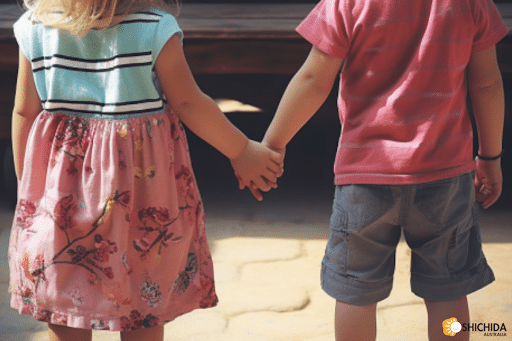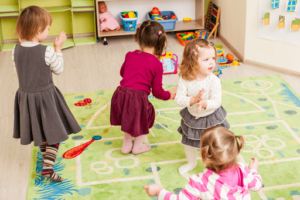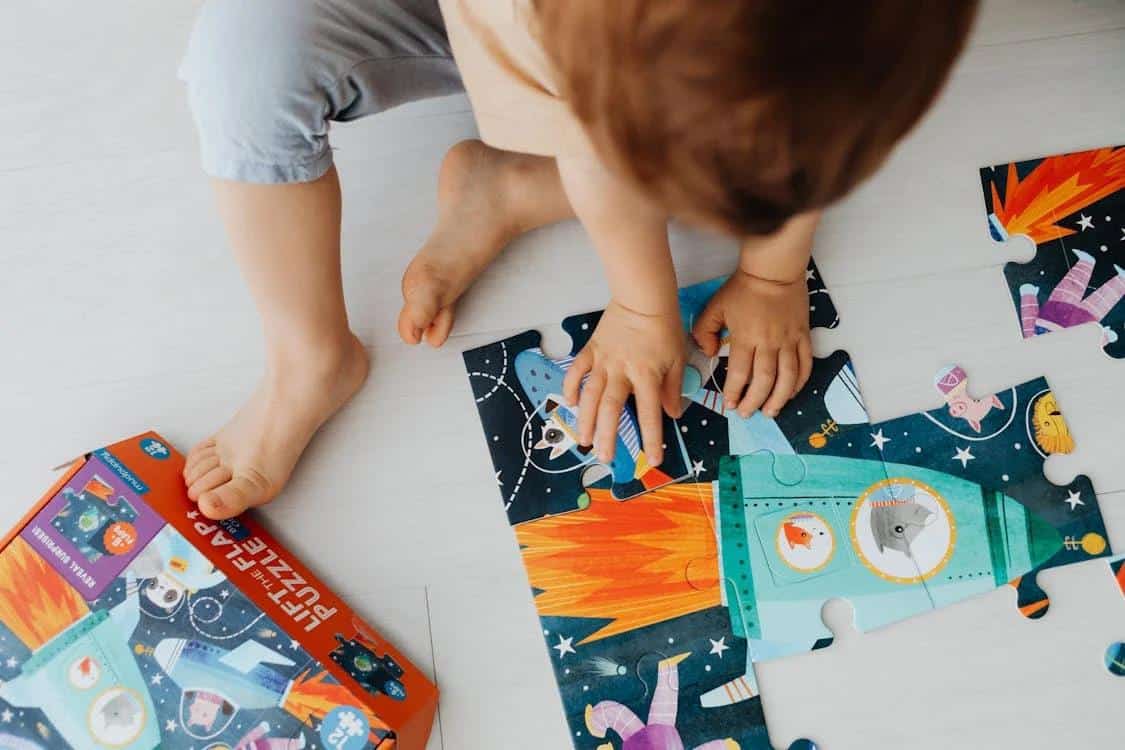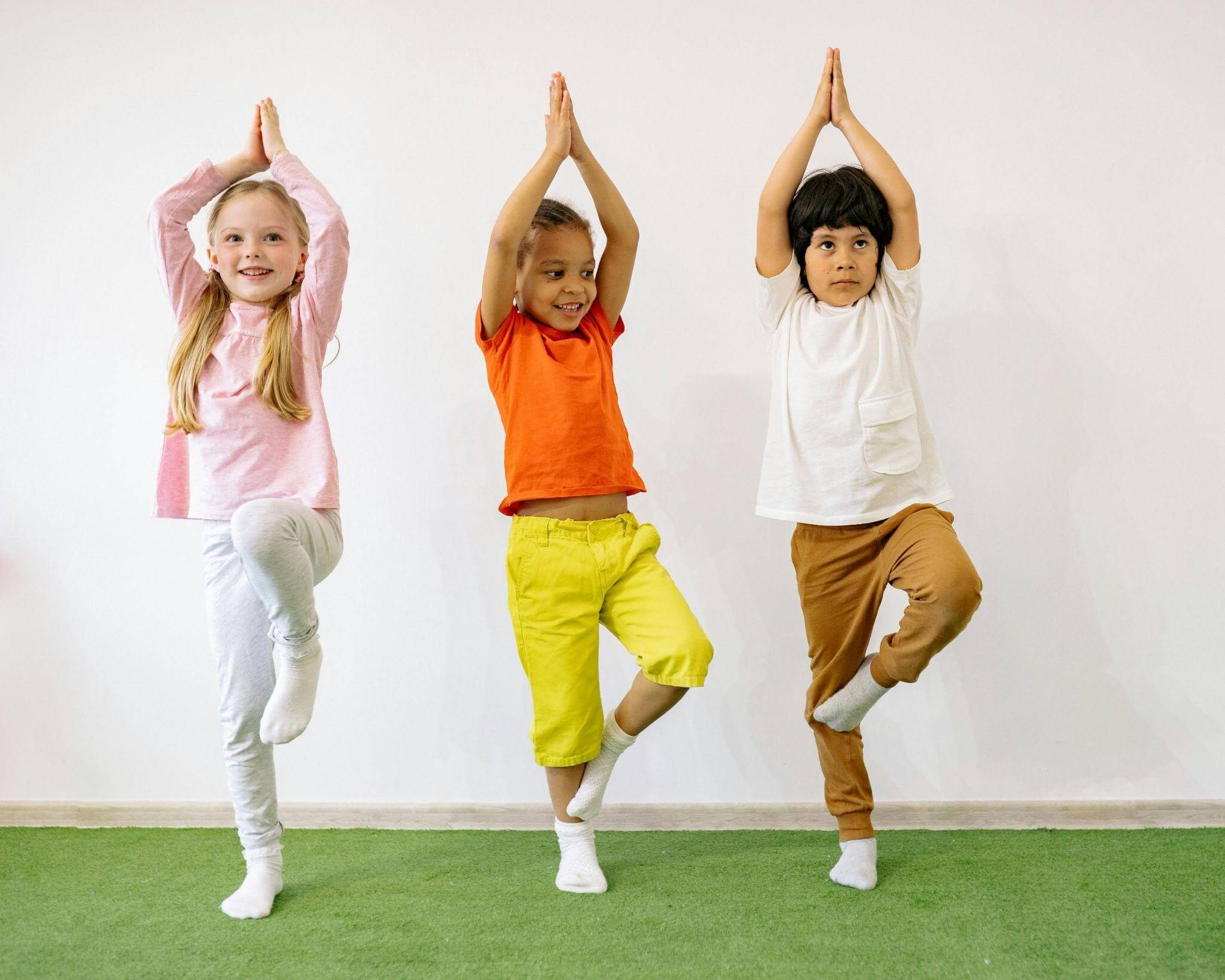
Nurturing Essential Social Skills
The ability to play well with others, share, and communicate is important for kids to make friends and create positive, fulfilling social interactions. By nurturing these essential social skills, you’ll help them navigate the playground today and the wider world tomorrow, ensuring they can connect with others, express themselves, and understand different perspectives.
What are essential social skills in kids?
Essential social skills help kids make friends, work in a team, and express themselves. From learning to share toys at playgroup to saying ‘please’ and ‘thank you’, these moments are the building blocks for healthy relationships.
Sharing
Sharing is fundamental in teaching kids about fairness and empathy. It’s the stepping stone to understanding that others have feelings too. Encourage this by introducing activities that require turn-taking and cooperation.
Empathy
A cornerstone of social interaction, empathy involves understanding and sharing the feelings of others. Kids show empathy when they comfort a friend or welcome a new classmate. Fostering this can be as simple as reading stories that explore emotions or role-playing different scenarios.
Communication
Clear communication is essential for expressing needs, desires, and feelings. It means both talking and active listening. Encourage your child to express themselves and to pay attention to what others are saying. Interactive games and storytelling can be excellent tools for this, expanding on vocabulary to assist in self expression.
Cooperation
Cooperation involves working together towards a shared goal. It’s about teamwork, whether it’s in a group project or a sports team. Encouraging cooperative play helps children understand the value of working with others.
Conflict resolution
Teaching kids to express their feelings calmly and listen to others helps them resolve conflicts constructively. Role-playing can be a great way to practise navigating disagreements.
Respect
Respect for others is foundational for healthy social interactions. This includes understanding personal boundaries, being polite, and appreciating diversity. Parents can teach respect through daily interactions and by being role models.
Using Manners
Manners are more than just saying “please” and “thank you”. They’re about showing consideration and respect in social situations. Teaching kids to use manners in everyday interactions helps them build positive relationships and shows them how to be courteous and thoughtful in the wider world.
Each skill is a building block in creating a well-rounded, socially adept individual.
Why is nurturing essential social skills important?
Nurturing essential social skills in young children is crucial because these abilities don’t come naturally; they need to be learned and practised. Here’s a closer look at why this is so important:
Understanding social expectations: Young children are still learning the ropes of social interaction. They often don’t instinctively know how to behave in various social settings. Whether it’s knowing to speak softly in a library or how to greet someone politely, these are skills that children learn through guidance and observation.
Developing conflict resolution skills: Conflict is a part of life, but resolving it doesn’t come naturally to most kids. They need to learn appropriate ways to express disagreement, negotiate, and find solutions. Without this guidance, children may resort to less constructive methods like tantrums or withdrawal.
Understanding others’ perspectives: Young children typically see the world mainly from their own point of view. Learning to consider other people’s feelings and thoughts is a key part of their social growth. This shift from focusing just on themselves to understanding others is an essential step in becoming empathetic and socially aware.
How to nurture essential social skills
So, how can you help? It’s often in the little things. Play dates, family gatherings, and even a trip to the park are all opportunities for nurturing essential social skills.
Role-playing games, storytelling, and encouraging your child to express their feelings are great tools, too. Remember, each child is different, so what works for one may not for another, but patience and encouragement always go a long way.
11 Activities to nurture essential social skills in kids
Board games night: Organise a family board games night. Games like ‘Sorry!’ or ‘Uno’ teaches turn-taking, fair play, and handling both winning and losing gracefully.
Cooking together: Involve your child in cooking meals. This can be a fun way to work on following instructions, sharing tasks, and enjoying the results together.
Community clean-up: Participate in a local community clean-up. It’s a practical way to teach respect for the environment and the importance of teamwork.
Storytelling sessions: Hold storytelling sessions where your child tells a story, focusing on characters’ feelings and actions. It’s great for empathy and understanding different perspectives.
Puppet show play: Create a puppet show with your child, with themes around sharing, kindness, or cooperation. Puppet play can be a safe and creative way to explore social scenarios. Use puppets or toys to demonstrate polite and impolite behaviour. Kids often find it easier to understand concepts when they’re presented in a playful, relatable context.
Nature walks with friends: Go on nature walks with a group of your child’s friends. This encourages exploration and conversation about the natural world, fostering group interaction and observational skills.
Charades game night: Play charades with family or friends. It’s not only fun but also helps in non-verbal communication and understanding others’ gestures and expressions.
Volunteer at a local charity: If age-appropriate, volunteer with your child at a local charity. It can be a powerful way to teach compassion and the value of helping others.
Thank-You card crafting: Make and send thank-you cards for gifts or kind gestures received. This activity reinforces the importance of gratitude and acknowledging others’ kindness.
Role-play different professions: Set up role-playing sessions where your child pretends to be in different professions like a doctor, teacher, or shopkeeper. This can be a playful way to understand various social roles and interactions.
Manners at different places: Teach children that different places have different manners. For example, being quiet in a library or staying seated in a restaurant. This helps them understand the context of using manners.
Handling different personalities
Every child is unique, and their approach to social interactions can vary greatly. Understanding and nurturing these differences is key to helping them develop healthy social skills. Let’s explore how to support both introverted and extroverted children in their social development.
For introverted children
When it comes to introverted kids, it’s all about understanding and respecting their comfort zone. These little ones might feel overwhelmed in big, noisy groups, so starting off with small and calm playdates is a good idea.
They also appreciate a heads-up about social events, giving them time to get mentally ready. Remember, introverted children often prefer deep connections with a few rather than having lots of friends, so focusing on building meaningful relationships is key. Creative and expressive activities like drawing or role-playing can be wonderful ways for them to open up and share their world at their own pace.
For extroverted children
Now, let’s talk about those extroverted youngsters who seem to have endless energy for socialising. For them, the challenge is often about learning to balance their love for talking with active listening.
They thrive in environments where they can channel their energy positively, like in team sports or group activities. But it’s also important to teach them empathy, especially towards more introverted peers. Questions like, “How might your friend feel in this situation?” can help develop this understanding. Although they’re naturally drawn to social settings, teaching extroverted kids to enjoy some quiet and reflective time can be beneficial for their overall development.
In both cases, it’s about striking a balance and helping your child discover and embrace their unique personality. Whether your child is an introvert, extrovert, or a mix of both, each has its own set of strengths. As a parent, nurturing these personalities means providing them with opportunities to grow in their own special way.
Social benefits of joining the Shichida Program
Our program is designed to provide the perfect environment for your little one to practise and hone these vital skills, all while engaging in enriching learning experiences.
In our small group classes, your child will have the opportunity to interact with other children and parents, making it an ideal setting for social development. These interactions are more than just play; they’re a platform for your child to learn sharing, communication, and empathy in a real-world context. Our classes also promote parent-child bonding, and are a lot of fun.
Our skilled educators guide these interactions, ensuring that each child feels included and valued. The activities promote positive social engagement, giving your child the chance to express themselves, understand others, and build friendships in a nurturing environment.
By combining learning with social development, the Shichida Australia program helps children grow not just academically, but also socially and emotionally. It’s a holistic approach that develops both EQ & IQ while preparing your little one for all the social adventures that lie ahead.
Remember that every shared toy, every ‘please’, and every little chat is a step towards building a confident, compassionate future adult.
Book a trial class at a Shichida early learning centre today!




